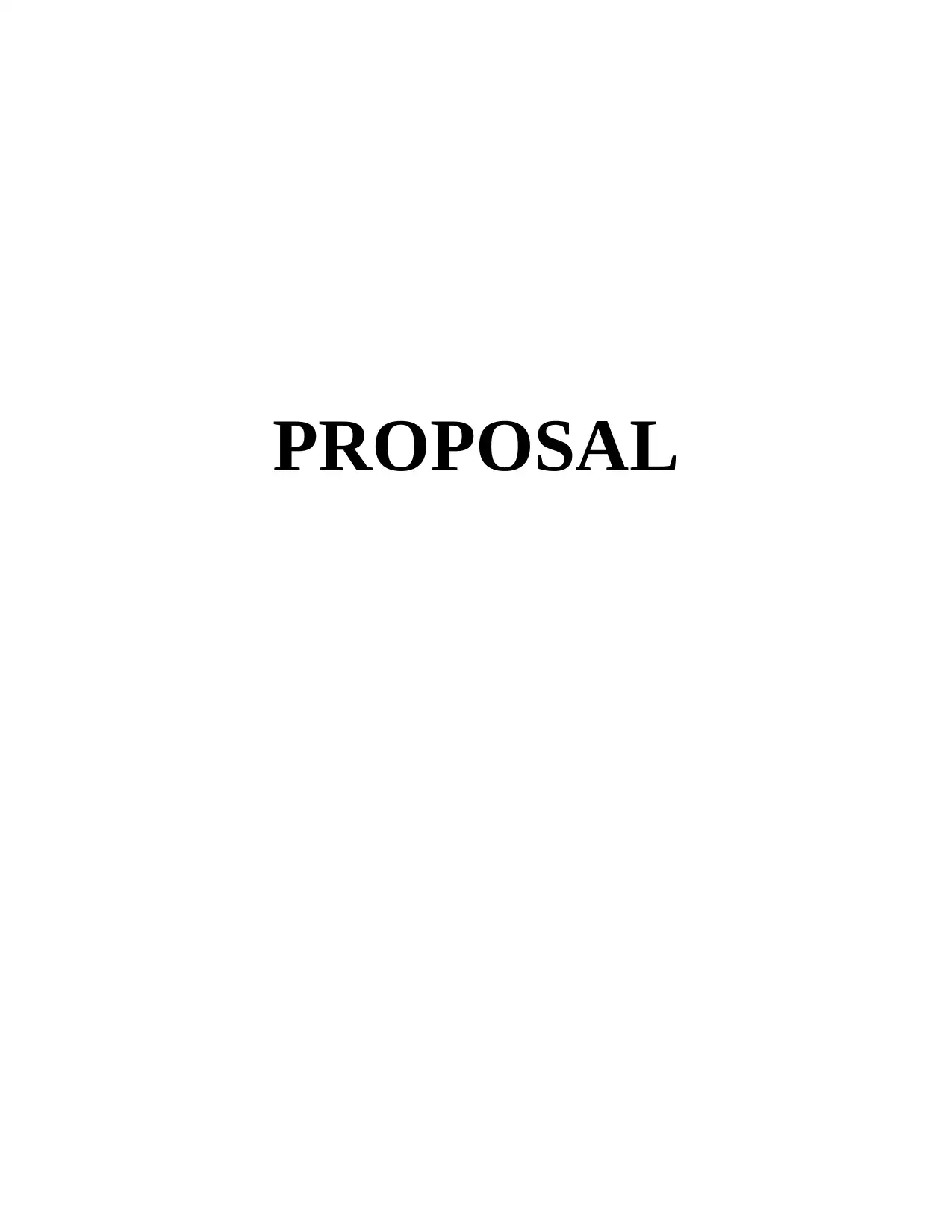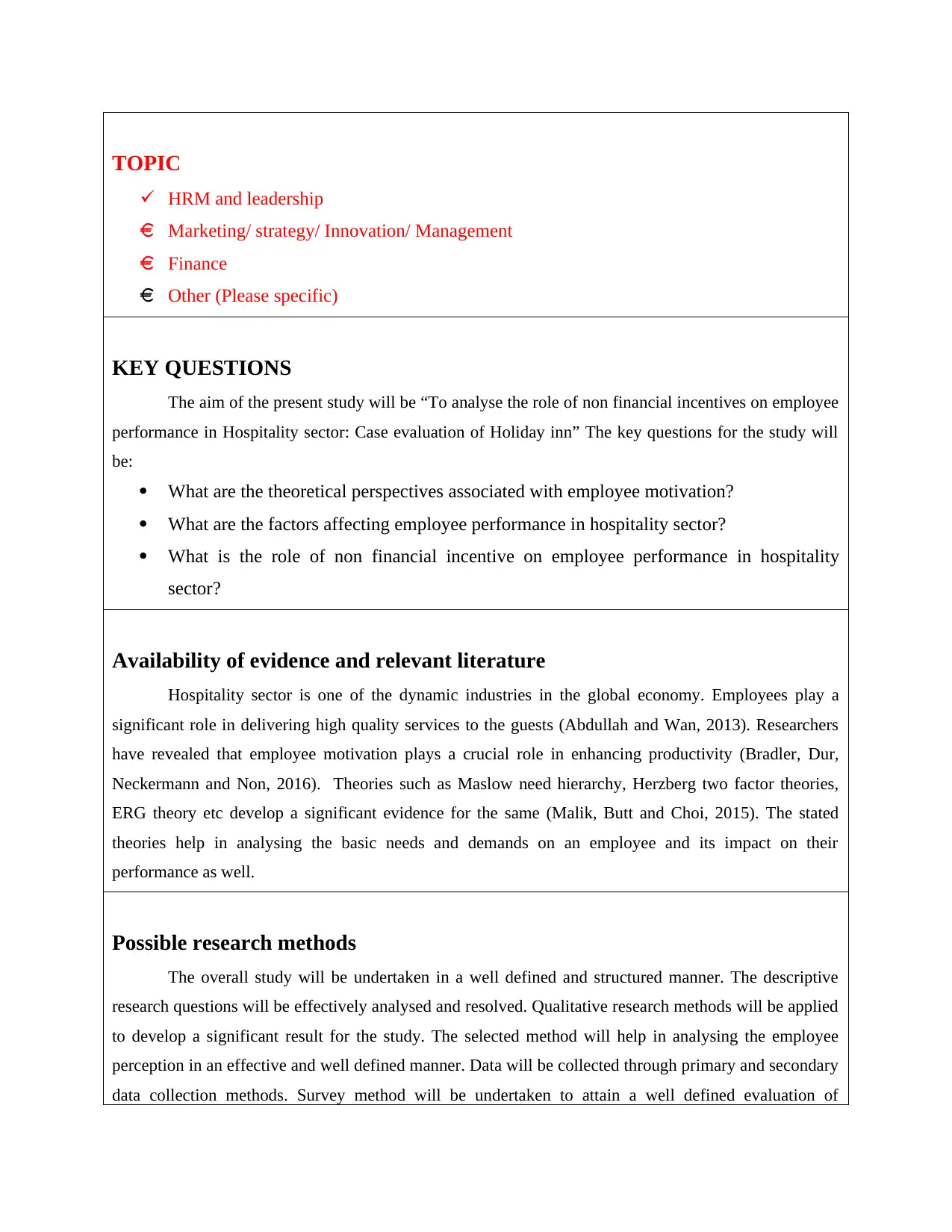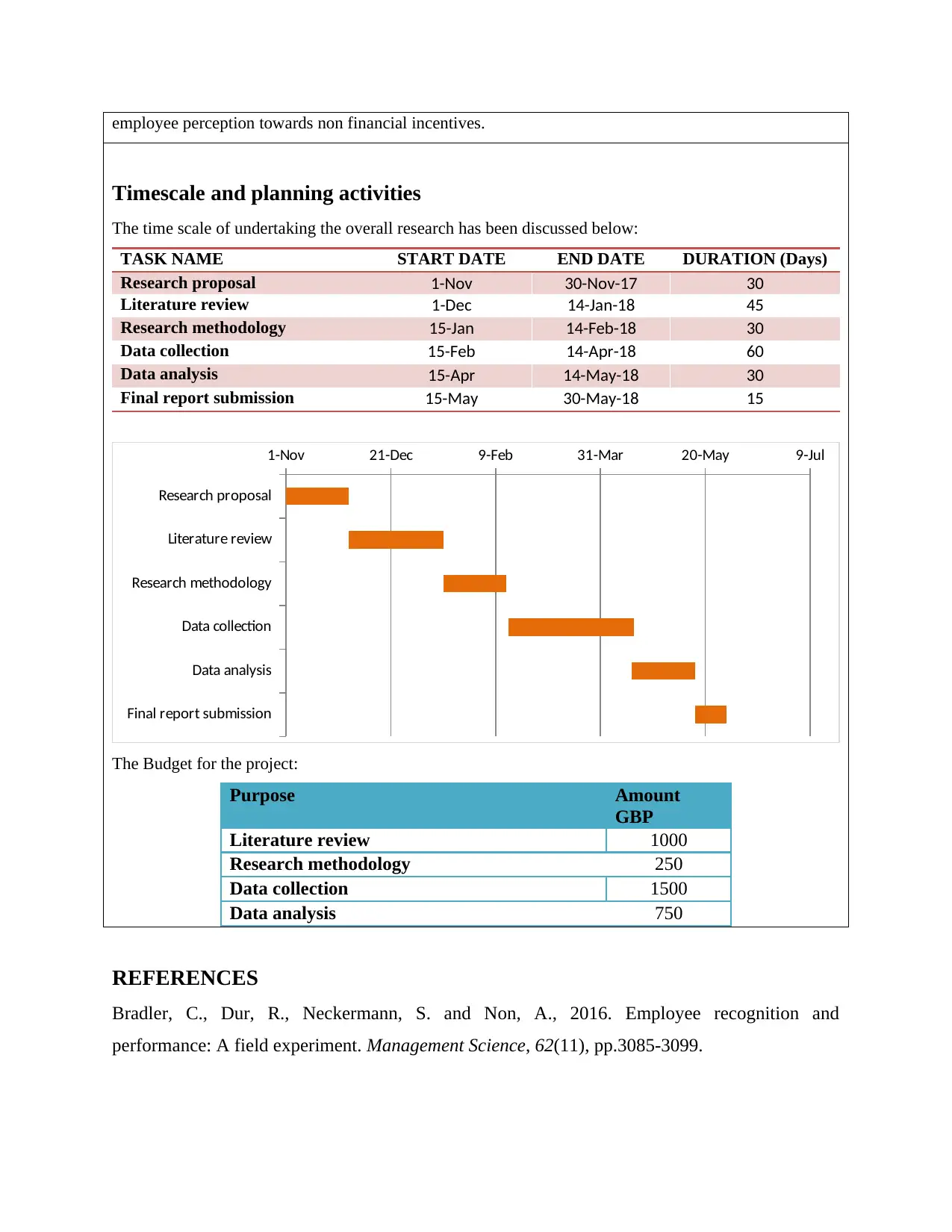HRM and Leadership Project: Non-Financial Incentives at Holiday Inn
VerifiedAdded on 2020/05/11
|3
|505
|34
Project
AI Summary
This project proposal outlines a study on the impact of non-financial incentives on employee performance within the hospitality sector, specifically using Holiday Inn as a case study. The research aims to explore the theoretical underpinnings of employee motivation, identify factors influencing performance in the hospitality industry, and assess the role of non-financial incentives. The methodology includes a descriptive research approach, utilizing qualitative methods and both primary and secondary data collection, including surveys. The proposal details a timeline spanning from November 2017 to May 2018, encompassing literature review, methodology development, data collection, analysis, and final report submission. A budget is also provided, allocating funds for literature review, research methodology, data collection, and analysis. The study references relevant literature on employee recognition, incentives, and performance, and the project is designed to provide valuable insights into effective management practices within the hospitality industry.
1 out of 3





![[object Object]](/_next/static/media/star-bottom.7253800d.svg)